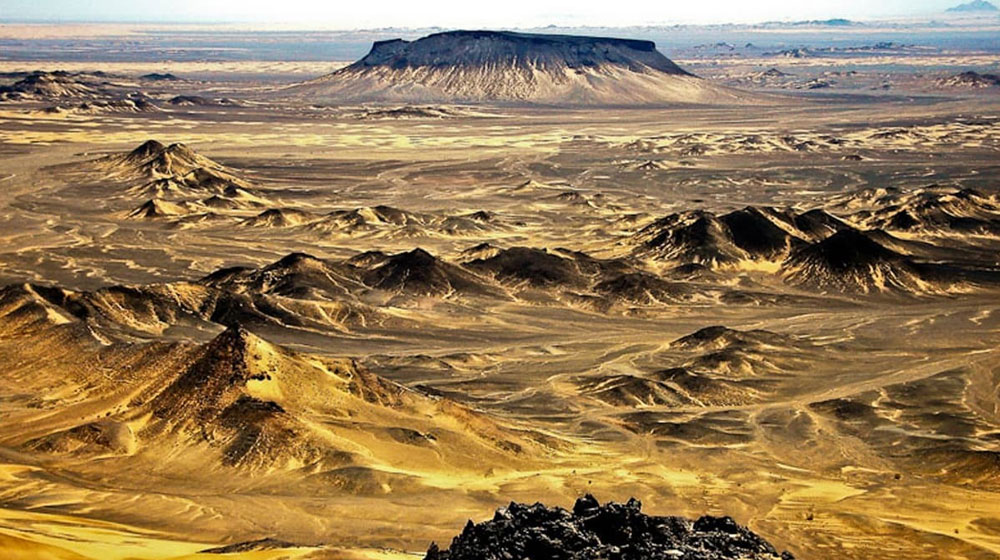
By Ahsan Gardezi
Pakistan played host last week to foreign dignitaries and mineral moguls at a glittering international summit in Islamabad, but the world around it moved on—fast and unbothered.
On stage, Prime Minister Shehbaz Sharif spoke grandly of “trillions of dollars” waiting to be mined across Pakistan. Offstage, the reality is far less theatrical: authorities have failed to move beyond zero-impact ceremonies while the global minerals race grows increasingly intense.
The Special Investment Facilitation Council (SIFC)—a hybrid civil-military body formed in 2023 to lure investors—has declared mining one of the five top sectors for investment. But apart from forming committees and hosting summits, concrete action remains missing. A rough estimate places the value of Pakistan’s mineral resources—copper, gold, rare earths, lithium, iron ore, and gemstones—at over $200 billion, while many experts say these pits hold precious stones worth over 5x higher. Whatever the valuation, the country’s output barely scratches the surface.
US-China Face-Off – Trump Blinks First
Last week, the United States reignited its tariff war with China by imposing another 34 percent tariff on Chinese imports, a move designed to box Beijing out of critical supply chains. In retaliation, China not only matched tariffs but went further—restricting exports of several rare earth minerals crucial to modern technology: samarium for magnets and lasers, gadolinium for MRI machines, terbium and dysprosium for electric vehicle motors and control rods, yttrium for LED phosphors, and scandium for high-performance alloys.
These minerals aren’t just trade assets—they’re strategic leverage. China currently controls about 95 percent of global rare earth production. The United States, on the other hand, has spent the last decade trying—unsuccessfully—to reshore critical mineral supply chains while simultaneously picking fights with the country that supplies them. According to a 2020 US International Trade Commission report, America is 78 percent dependent on China for rare earths alone.
It’s not the first time Washington has played this reckless hand. In 2023, the US watched helplessly as China blocked exports of gallium and germanium, both vital for semiconductors. In 2024, China followed up by tightening controls on rare earths even further. Now, the screws are tightening again—and the rest of the world is left guessing how long the stockpiles will last.
The Cheerleader
Pakistan, meanwhile, is neither a player in this game nor a supplier—despite sitting on the very minerals that the world is fighting over.
Instead, we get legislation like the Khyber Pakhtunkhwa Mines and Minerals Bill 2025, passed earlier this month by the provincial government. The bill creates two new bureaucracies—one to issue licences, the other to “facilitate investment”—both stacked with bureaucrats and ministers. The actual act of mining seems to be missing.
Both are loaded with overlapping roles, departmental reps, and non-binding mandates. Worse, federal interference is hardwired into the bill. All major mining agreements must align with a model agreement provided by Islamabad’s Federal Mineral Wing. In theory, this is for standardization. In practice, it undermines provincial autonomy and creates yet another layer of approval—and delay.
For large-scale mining projects—defined as anything over Rs. 500 million—the law mandates joint ventures with government-run companies. This would be reasonable if those companies had the capability to explore or extract. They don’t. They exist mostly on paper, propped up by the illusion of capacity.
Pakistan’s state-run mining outfits have long suffered from underfunding, political meddling, and operational incompetence. Private investors—domestic and foreign—face an opaque regulatory environment, legal uncertainty, and security concerns.
So, while Washington and Beijing slug it out over who controls tomorrow’s technology, Pakistan claps from the sidelines—cheering, hosting summits, and drafting laws that do little to change its mineral destiny.
The minerals are there. We have them. The urgency is global. But the will? Still missing in action.
The article appeared in the propakistani
